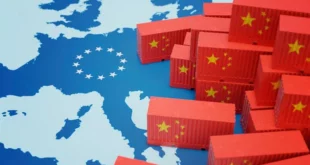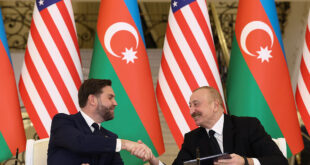 TBILISI – Georgian President Mikhail Saakashvili is likely to win a new term in a snap election on January 5, but the vote will have to be squeaky clean if he is to regain his tattered reputation as a champion of democracy.
TBILISI – Georgian President Mikhail Saakashvili is likely to win a new term in a snap election on January 5, but the vote will have to be squeaky clean if he is to regain his tattered reputation as a champion of democracy.
Saakashvili, who swept to power in a 2003 “Rose Revolution”, dismayed his Western allies in November when he responded to massive opposition protests by sending in police with teargas and by closing down the biggest opposition television station.
He called the election months earlier than the scheduled date as part of a package of concessions to ease the stand-off with the opposition, which accuses him of ruling in an autocratic style and failing to ease poverty and unemployment.
“Saakashvili is the president who used force against his own people. He has no moral right to stay in power,” Tina Khidasheli, a leader of the main opposition coalition, said at an election rally in the centre of Tbilisi on Saturday.
There are no reliable polls in Georgia, but analysts predict Saakashvili, a 40-year-old U.S.-educated lawyer with a Dutch wife, will win about 60 percent of the vote.
Before riot police moved in, opposition parties mobilized up to 70,000 protesters in Tbilisi in November, but they damaged their election chances by failing to agree on a unity candidate.
Georgia, an ex-Soviet state of 4.5 million people in the Caucasus mountains, has strategic importance. A BP-led consortium will soon be pumping 1 million barrels of oil a day through a pipeline across Georgia, bypassing Russia.
The staunch U.S. ally has been the focus of a geopolitical tug-of-war with Russia, which accuses the West of encroaching on its traditional sphere of influence.
The vote is unlikely to change Georgia’s pro-Western policies or its tense relations with Russia. All the leading candidates back Saakashvili’s drive for membership of NATO and the European Union.
OPPOSITION SPLIT
About 6,000 opposition supporters gathered on Saturday for the rally in support of Levan Gachechiladze, a 43-year-old wine producer backed by the opposition coalition.
Votes for the opposition are likely to be split between Gachechiladze and Shalva Natelashvili, the leader of the Labor Party who split from the coalition.
Multi-millionaire Badri Patarkatsishvili, who was accused of plotting a coup after his Imedi television station became the main mouthpiece for the opposition protests in November, said this week he would pull out of the race.
Police shut down Imedi, which is part-owned by Rupert Murdoch’s News Corp, but it was allowed back on air this month — meeting a key demand of Western governments.
Opposition challengers say they will stage mass protests after January 5 if there is evidence of ballot fraud.
Their ability to mobilize large numbers of protesters is likely to depend on whether observers from the Organization for Security and Cooperation in Europe deem the vote was fair.
Though he is on course to win, voters are expected to register their unhappiness with Saakashvili’s rule.
President George W. Bush described Georgia as a “beacon of democracy” and liberal economic reforms have helped deliver gross domestic product growth of between 9 and 12 percent in each of the past four years. Foreign investment has surged.
But many Georgians complain that while the West praises the reforms, they have been left behind: inflation eats into incomes, utilities bills have risen and unemployment is high.
 Eurasia Press & News
Eurasia Press & News



